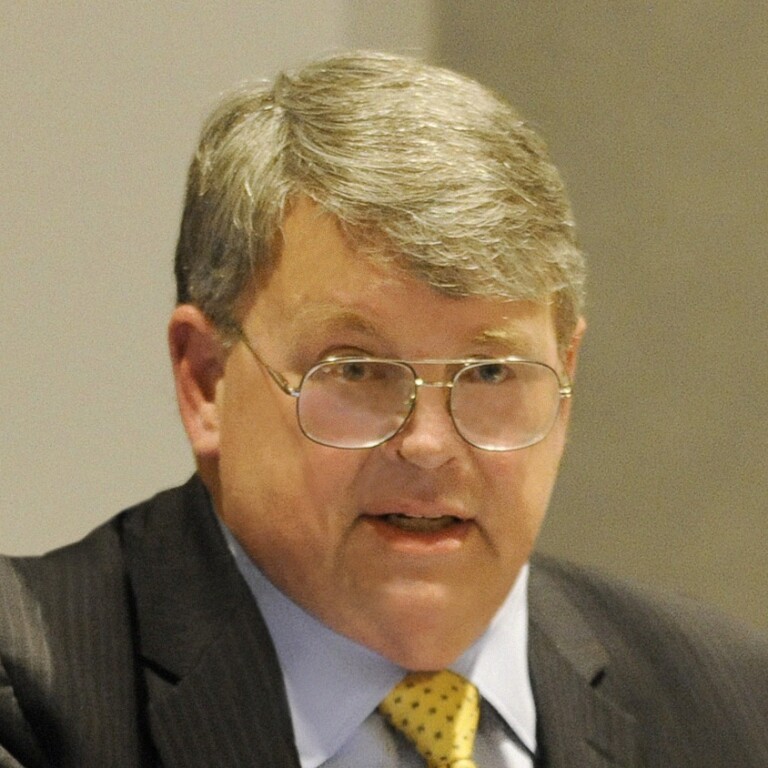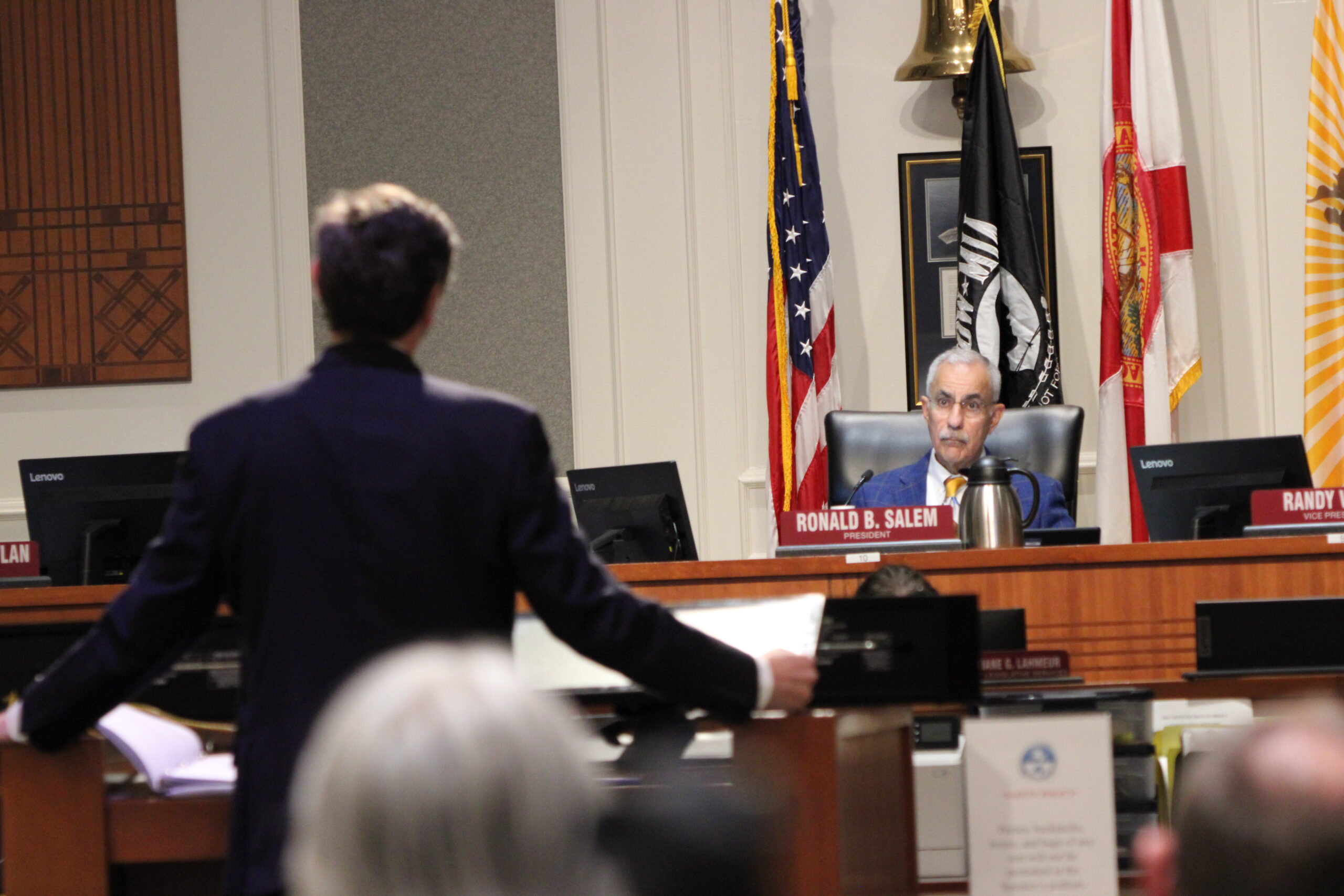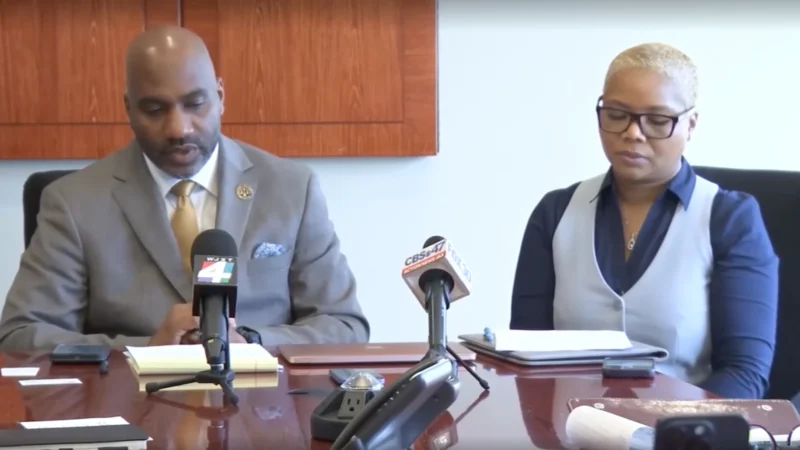
In 1943 Norman Rockwell, probably the best-known illustrator of the 20th century, painted his famous “Freedom of Speech.” Renowned for his evocative portrayals of American life, Rockwell’s painting depicts a New England town meeting where a man is seen standing as he prepares to speak. Plainly dressed, he could have been a farmer, a factory worker, or a shopkeeper — the “everyman” exercising his right to speak freely.
It’s a poignant image but it’s not what anyone should expect in Jacksonville. Those who give up an evening to drive Downtown, hunt for a parking space and find their way to a City Council or School Board meeting might be in for a surprise.
Take City Council. If you fill out the required speaker’s card and wait your turn during public comment, did you know you’re not allowed to criticize a council member by name? According to the rules, you’re not even allowed to speak the name of a council member! So, if you’re there to direct your remarks to your representative’s lackluster performance, or because he or she has broken a campaign promise, or because they never return your phone calls or respond to your emails, you can forget about calling them out by name.
It gets worse.
What had once been two periods of public comment during City Council meetings have now been cut to only one, with no more than 90 minutes total. When controversial measures are on the agenda and dozens of people are waiting to speak, those who would ordinarily have three minutes each to address City Council will see their speaking time cut painfully short. One veteran council observer says this happens regularly.
As for meetings of City Council’s various committees where legislation receives its most thorough vetting, public comment is not guaranteed except at “at the pleasure of the committee.” There is a provision, however, that “following the transaction of official business a committee…may remain in session without a quorum to receive…additional comments from the public.” In other words, after all the votes have been taken and committee members have begun leaving the room, the chair may opt to hear from the public. I think most would agree that addressing a City Council committee under these circumstances would be a wasted effort.
As for the Duval County School Board, it limits public comments to no more than one minute per person when more than 40 speakers are in the queue – all while conducting its meetings using a poorly articulated and unevenly enforced set of rules.
Take, for example, what unfolded on the evening of November 7, 2023, during the designated public comment period. That’s when commenter “Joseph M.” attempted to address the school board.
The hot topic that night was the continued availability of the book Identical by Ellen Hopkins in at least half a dozen school libraries. The book contains vivid descriptions of incest and the sexual abuse of minors.
But the real issue here isn’t the book, it’s about how Board Chair Kelly Coker and board attorney Ray Poole treated Mr. M when he attempted to read selections from Identical. Even though previous speakers had read passages from the book and made descriptive references that were more explicit, Mr. M was accused of using “vulgar” language and was quickly silenced by Coker and Poole.
To be clear, Mr. M never raised his voice or used any profanity. He wasn’t violent, threatening, or abusive. His only offense was to insist on reading from a book that Duval County Public Schools had purchased for its libraries. The only “vulgar” language came from the book itself.
When Mr. M engaged in a brief exchange with Mr. Poole during which he challenged what he saw as an infringement of his First Amendment rights, Poole replied saying “I’m not going to debate you.” At that point, and at the direction of Poole, Mr. M was hustled out of the building by several police officers.
I get the point. A presiding officer needs to maintain order and decorum. But they also should use their power cautiously and look for ways to deescalate tense situations. In the case of Mr. M, most of the tension was created by Coker and Poole who, given their lenient treatment of previous speakers, overreacted.
School Board policy states:“If after at least one warning from the chairperson, a person…continues to disrupt the meeting by words or actions, then the chairperson shall direct law enforcement to remove the person from the meeting and the building.” It doesn’t say that a legal advisor – Poole in this case – has that authority, neither does it say that interrupting a speaker is the equivalent of issuing the required warning.
I’ve watched and listened to the video a dozen times. While Coker and Poole speak over each other and repeatedly interrupt Mr. M., Coker never silences Poole long enough to issue a clearly articulated warning. Neither is it Coker who orders law enforcement to intervene. In the end it’s Poole, not Coker who orders Mr. M’s forced removal, in what appears to be a violation of School Board policy.
Sorry, but I’m a stickler for the rules, especially when they involve the use of force. I also have a problem with allowing an unelected legal advisor to precipitate the arrest of a private citizen.
Here’s the ultimate irony: According to Florida law, “Parents shall have the right to read passages from any material that is subject to an objection. If the school board denies a parent the right to read passages due to content that [depicts or describes sexual conduct] the school district shall discontinue the use of the material.”
All of this raises the question: If the book was that “vulgar,” why was it still on library shelves?
The libertarian in me objects to the unnecessary use of force against anyone, especially when force is used against those attempting to address an elected body.
Coker and Poole could have stepped back and defused the situation by just allowing Mr. M to retake his seat. Instead, they violated the public trust by berating and humiliating him. It was a poor choice.
None of the preceding should discourage anyone from attending a City Council or School Board meeting to express their concerns. Even a short speech is better than none, and the weight of many speakers on an issue can have a persuasive effect.
However, in the interest of free speech and accountability, City Council needs to stop shielding its members from direct criticism. It also needs to provide more opportunities to receive public input by extending the length of its meetings and by allowing public comment whenever legislation is being debated in committee. Ultimately, giving voters their three minutes is more important than an early adjournment.







